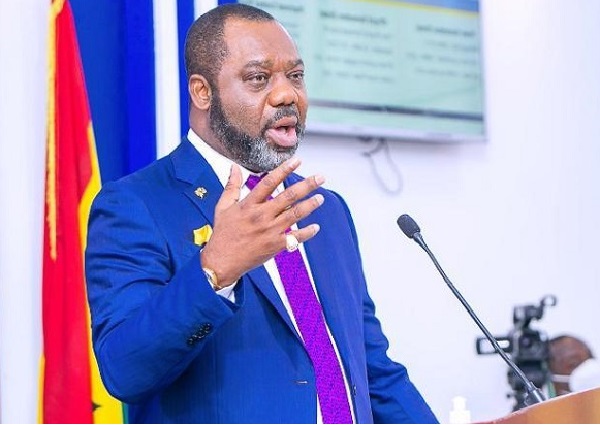
We won’t stop oil exploitation - Energy Minister
The country has only started the exploitation of its petroleum resources and cannot sacrifice it midstream on the altar of energy transition, the Minister of Energy, Dr Matthew Opoku Prempeh, has stated.
He said although developed nations were pushing for energy transition — a changeover from the use of fossil oils that are identified to be polluting the environment to other sources such as solar, lithium and nuclear, together known as cleaner fuels — countries such as Ghana had only started exploitation of their resources and would continue with such plans to spur industrialisation and development.
The Energy Minister said the rich nations promoting such causes had harnessed and benefited from the same resources they now described as unclean, while Africa and other developing countries had just started utilising their endowments.
“It is high time we Africans started to produce and use energies we have on this continent for our own development and that is the push for the current crop of Energy Ministers around Africa,” Dr Prempeh stated while addressing delegates on the second day of the Local Content Conference and Exhibition in Takoradi, the Western regional capital, yesterday.
Conference
This year’s Local Content Conference and Exhibition also marks 10 years since the country’s promulgation of the Petroleum (Local Content and Local Participation) Regulations, 2013 (L.I. 2204), hence the theme: “Ten years of Local Content in Ghana’s Upstream Petroleum Industry; Achievements, Challenges and Prospects”.
Players in the industry, both downstream and upstream companies, service providers, maritime, port services, insurance and other financial institutions which had over the years contributed to the space, attended the conference.
More than 1,000 participants from Ghana, Nigeria, the Gambia, Uganda, Angola, Senegal and Trinidad & Tobago and Europe, among others, are attending the conference.
The Graphic Communications Group Ltd is the media partner of the event.
Least polluter
Dr Prempeh said it was the claim of the International Energy Agency that even if its members did not have new oil finds, there was enough energy to go round.
However, the minister stated that when it came to Africa, the continent had contributed the least to the pollution of less than three per cent, saying “even if we burn all our oil resources it will be less than four per cent.”
Citing the electricity density of Europe, Dr Prempeh said France was labelled green because it used nuclear and Germany was labelled brown because it continued to use a certain amount of coal in the production of electricity to support its industrialisation.
“We have not used coal and we don’t intend to.
But it has served Germany’s purpose and made that country one of the most complicated industrialised countries in the world.
“So, we struggling economies decided among us that we are not going to stand for that edict to stop the exploitation of our natural resources.
So we are going to continue to drill and drill and drill,” he stressed.
Dr Prempeh disclosed that the African Union had started the process to set up an African Energy Bank to finance energy projects to ensure that “if the resources are not provided, we will do it for ourselves”.
The Energy Minister reminded the developed world of the unfulfilled pledge to finance climate change adaptation interventions with $100 billion a year, starting from 2015.
He said developing countries vulnerable to the actions of the rich nations had received nothing from the pledged funding.
“Now we have forgotten that there's a principle called polluter pays.
But those who have polluted most are unwilling to pay, and yet say I shouldn't develop my country.
If I don't develop my country, what do I do,” he said quizzically.
Dr Prempeh said Ghana would consider several important factors in the global conversation and come up with a homegrown or organic solution for energy transition.
He stated that the country and the rest of Africa would not risk sitting on large reserves of stranded oil and gas assets, which were key to its development agenda in its quest to ensure industrialisation and hasten the energy transition process.
The energy transition, he noted, was not simple but complex and had important ramifications for the structure of the economy and future development prospects.
In its quest to avert that possibility, he said, the ministry had developed the National Energy Transition Framework.
The transition
“This framework will guide our strategic and pragmatic transition to achieve net zero emissions by 2070 and minimise the disparaging impacts, to the extent possible,” he said.
Dr Prempeh said the Petroleum Commission, the upstream industry regulator, had been tasked to lead the development of an Upstream Oil and Gas Transition Plan.
He commended the commission for the successes achieved under the Local Content framework and said although it was not its core business, it championed it successfully to the benefit of all stakeholders.
The Energy Minister also praised the commission for keeping faith with the conference and exhibition on local content, expressing the hope that it would become the convergence point of energy experts around the globe.
He said the country would have shot itself in the foot if it had failed to prioritise and develop local content
